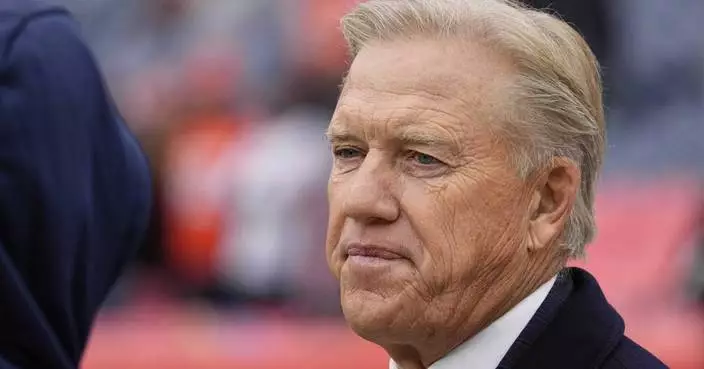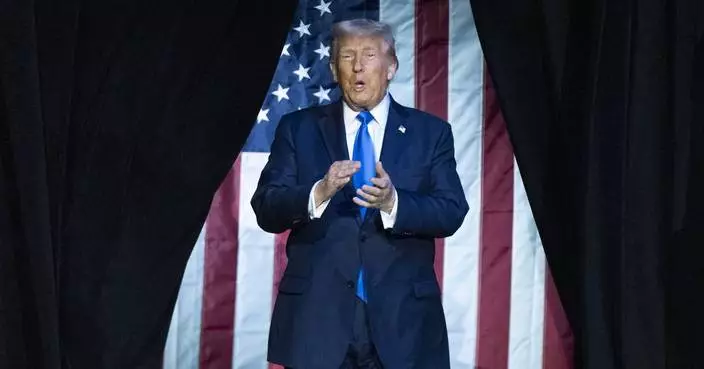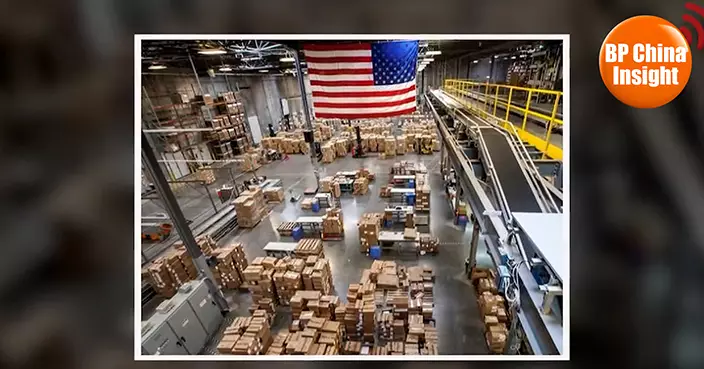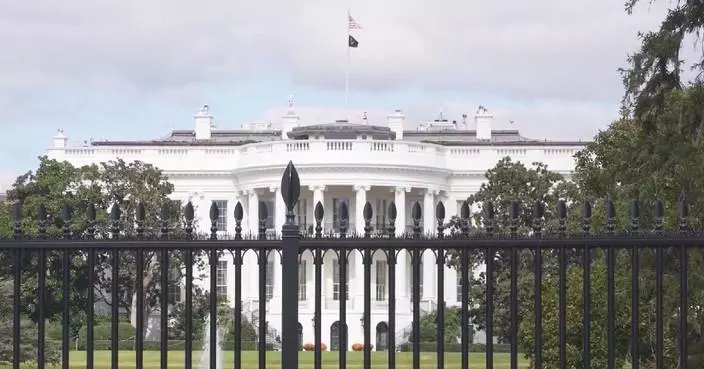The Taliban morality police in Afghanistan have detained men and their barbers over hairstyles and others for missing prayers at mosques during the holy month of Ramadan, a U.N. report said Thursday, six months after laws regulating people’s conduct came into effect.
The Vice and Virtue Ministry published laws last August covering many aspects everyday life in Afghanistan, including public transport, music, shaving and celebrations. Most notably, the ministry issued a ban on women’s voices and bare faces in public.
That same month, a top U.N. official warned the laws provided a “distressing vision” for the country’s future by adding to existing employment, education, and dress code restrictions on women and girls. Taliban officials have rejected U.N. concerns about the morality laws.
Thursday’s report, from the U.N. mission in Afghanistan, said in the first 6 months of the laws’ implementation, over half of detentions made under it concerned “either men not having the compliant beard length or hairstyle, or barbers providing non-compliant beard trimming or haircuts.”
The report said that the morality police regularly detained people arbitrarily "without due process and legal protections.”
During the holy fasting month of Ramadan, men’s attendance at mandated congregational prayers was closely monitored, leading at times to arbitrary detention of those who didn't show up, the report added.
The U.N. mission said that both sexes were negatively affected, particularly people with small businesses such as private education centers, barbers and hairdressers, tailors, wedding caterers and restaurants, leading to a reduction or total loss of income and employment opportunities.
The direct and indirect socio-economic effects of the laws’ implementation were likely to compound Afghanistan’s dire economic situation, it said. A World Bank study has assessed that authorities’ ban on women from education and work could cost the country over $1.4 billion per year.
But the Taliban leader, Hibatullah Akhundzada, has emphasized the primacy of Islamic law and the role of the Ministry of Vice and Virtue in reforming Afghan society and its people.
In a message issued ahead of the religious Eid Al-Fitr festival that marks the end of Ramadan, Akhundzada said it was necessary “to establish a society free from corruption and trials, and to prevent future generations from becoming victims of misguided beliefs, harmful practices and bad morals.”
More than 3,300 mostly male inspectors are tasked with informing people about the law and enforcing it, according to the report.
The ministry has resolved thousands of people's complaints and defended the rights of Afghan women, according to its spokesman Saif ur Rahman Khyber.
This was in addition to “implementing divine decrees in the fields of promoting virtue, preventing vice, establishing affirmations, preventing bad deeds, and eliminating bad customs.”
The ministry was committed to all Islamic and human rights and had proven this in practice, he said Thursday, rejecting attempts to “sabotage or spread rumors” about its activities.
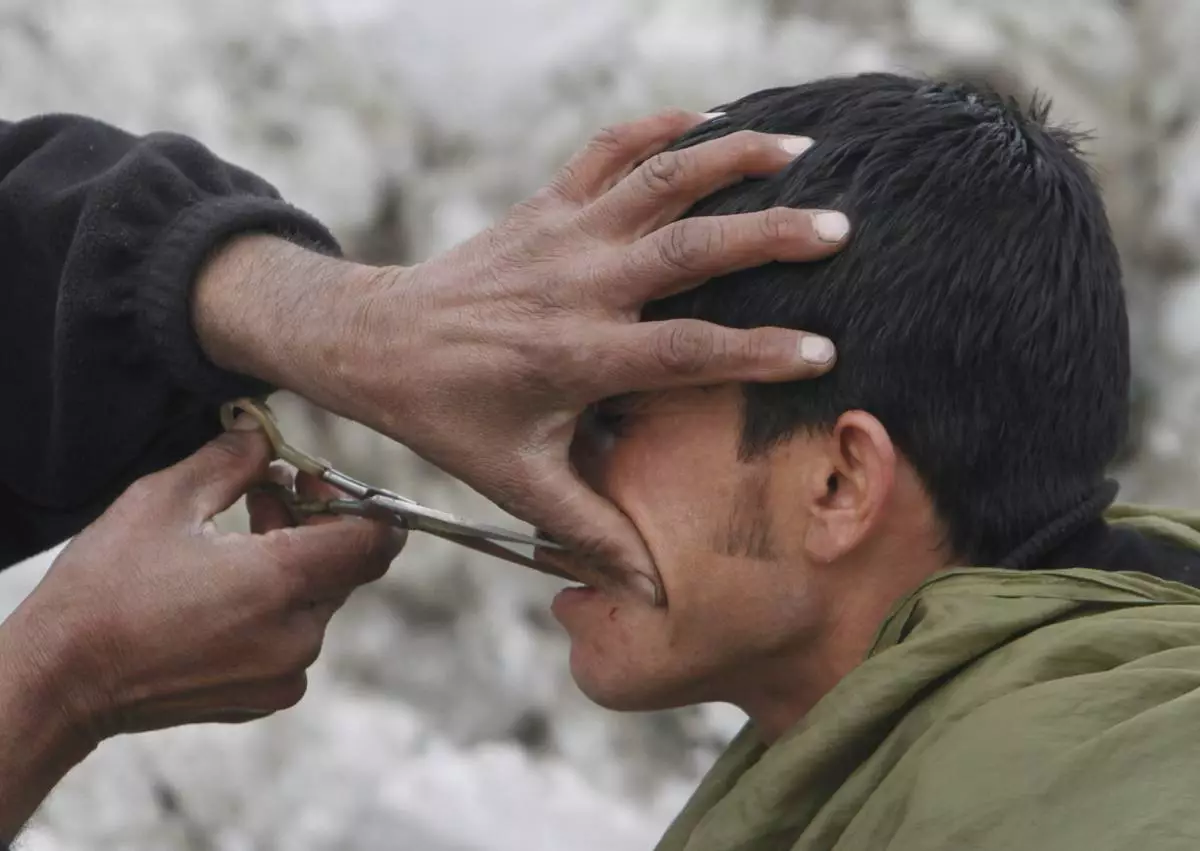
FILE -An Afghan street barber man, left, trims the mustache of a customer, as snow is seen the back ground in Kabul, Afghanistan, Feb. 9, 2012. (AP Photo/Musadeq Sadeq, File)
Wall Street extended its gains to a ninth straight day Friday, marking the stock market’s longest winning streak since 2004 and reclaiming the ground it lost since President Donald Trump escalated his trade war in early April.
The rally was spurred by a better-than-expected report on the U.S. job market and resurgent hope for a ratcheting down in the U.S. trade showdown with China.
The S&P 500 climbed 1.5%. The Dow Jones Industrial Average added 1.4%, and the Nasdaq composite rose 1.5%.
The gains were broad. Roughly 90% of stocks and every sector in the S&P 500 advanced. Technology stocks were among the companies doing the heaviest lifting. Microsoft rose 2.3% and Nvidia rose 2.5%. Apple, however, fell 3.7% after the iPhone maker estimated that tariffs will cost it $900 million.
Banks and other financial companies also made solid gains. JPMorgan Chase rose 2.3% and Visa closed 1.5% higher.
Employers added 177,000 jobs in April. That marks a slowdown in hiring from March, but it was solidly better than economists anticipated. However, the latest job figures don’t yet reflect the effects on the economy of President Donald Trump’s across-the-board tariffs against America’s trading partners. Many of the more severe tariffs that were supposed to go into effect in April were delayed by three months, with the notable exception of tariffs against China.
“We’ve already seen how financial markets will react if the administration moves forward with their initial tariff plan, so unless they take a different tack in July when the 90-day pause expires, we will see market action similar to the first week of April,” said Chris Zaccarelli, chief investment officer for Northlight Asset Management.
The S&P 500 slumped 9.1% during the first week of April as Trump announced a major escalation of his trade war with more tariffs. The market has now clawed back its losses since then, helped by a string of resilient earnings reports from U.S. companies, hopes for de-escalation of trade tensions with China and expectations that the Federal Reserve will still be able to cut rates a few times this year.
The benchmark index is still down 3.3% so far this year, and 7.4% below the record it reached in February.
All told, the S&P 500 rose 82.53 points to 5,686.67. The Dow gained 564.47 points to 41,317.43, and the Nasdaq added 266.99 points to 17,977.73.
The job market is being closely watched for signs of stress amid trade war tensions. Strong employment has helped fuel solid consumer spending and economic growth over the last few years. Economists are now worried about the impact that taxes on imports will have on consumers and businesses, especially about how higher costs will hurt hiring and spending.
The economy is already showing signs of strain. The U.S. economy shrank at a 0.3% annual pace during the first quarter of the year. It was slowed by a surge in imports as businesses tried to get ahead of Trump’s tariffs.
The current round of tariffs and the on-again-off-again nature of Trump’s policy has overshadowed planning for businesses and households. Companies have been cutting and withdrawing financial forecasts because of the uncertainty over how much tariffs will cost them and how much they will squeeze consumers and sap spending.
Hopes remain that Trump will roll back some of his tariffs after negotiating trade deals with other countries. China has been a key target, with tariffs of 145%. Its Commerce Ministry said Beijing is evaluating overtures from the U.S. regarding the tariffs.
Investors had a relatively quiet day of earnings reports following a busy week. Exxon Mobil rose 0.4%, recovering from an early slide, after reporting its lowest first-quarter profit in years. Rival Chevron rose 1.6% after it also reported its smallest first-quarter profit in years.
Falling crude oil prices have weighed on the sector. Crude oil prices in the U.S. are down about 17% for the year. They fell below $60 per barrel this week, which is a level at which many producers can no longer turn a profit.
Block slumped 20.4% after reporting a sharp drop in first-quarter profit that fell short of analysts' forecasts. The financial technology company behind Cash App cited a pullback in consumer spending on travel and other discretionary items as a key reason for the results.
Treasury yields rose in the bond market. The yield on the 10-year Treasury rose to 4.31% from 4.22% late Thursday.
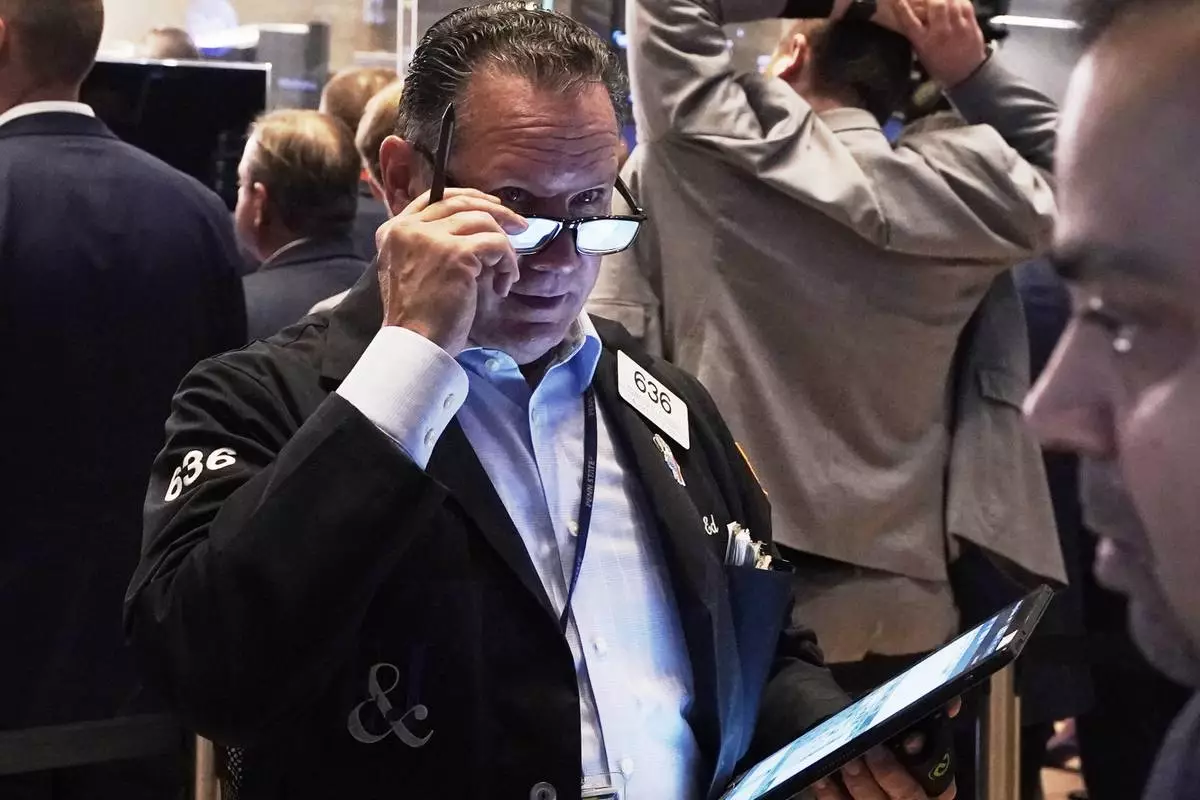
Trader Edward Curran works on the floor of the New York Stock Exchange, Friday, May 2, 2025. (AP Photo/Richard Drew)
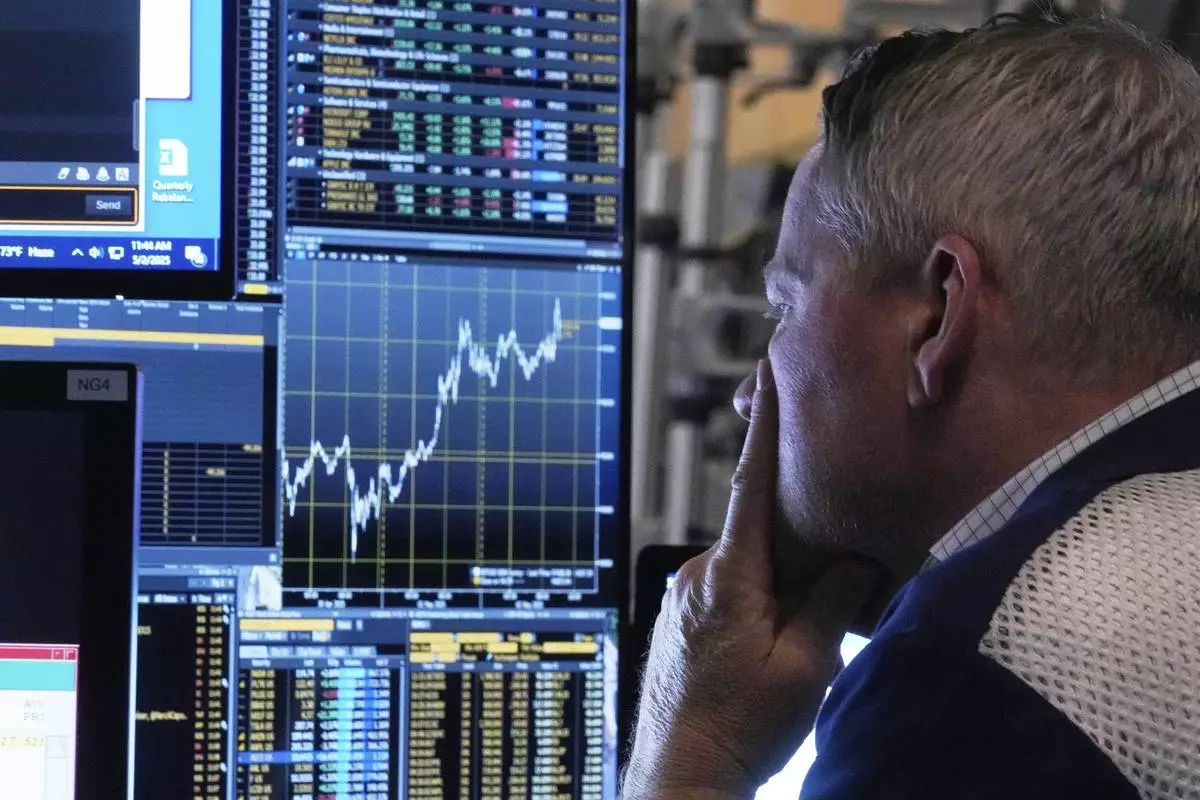
Trader Rob Taylor works on the floor of the New York Stock Exchange, Friday, May 2, 2025. (AP Photo/Richard Drew)
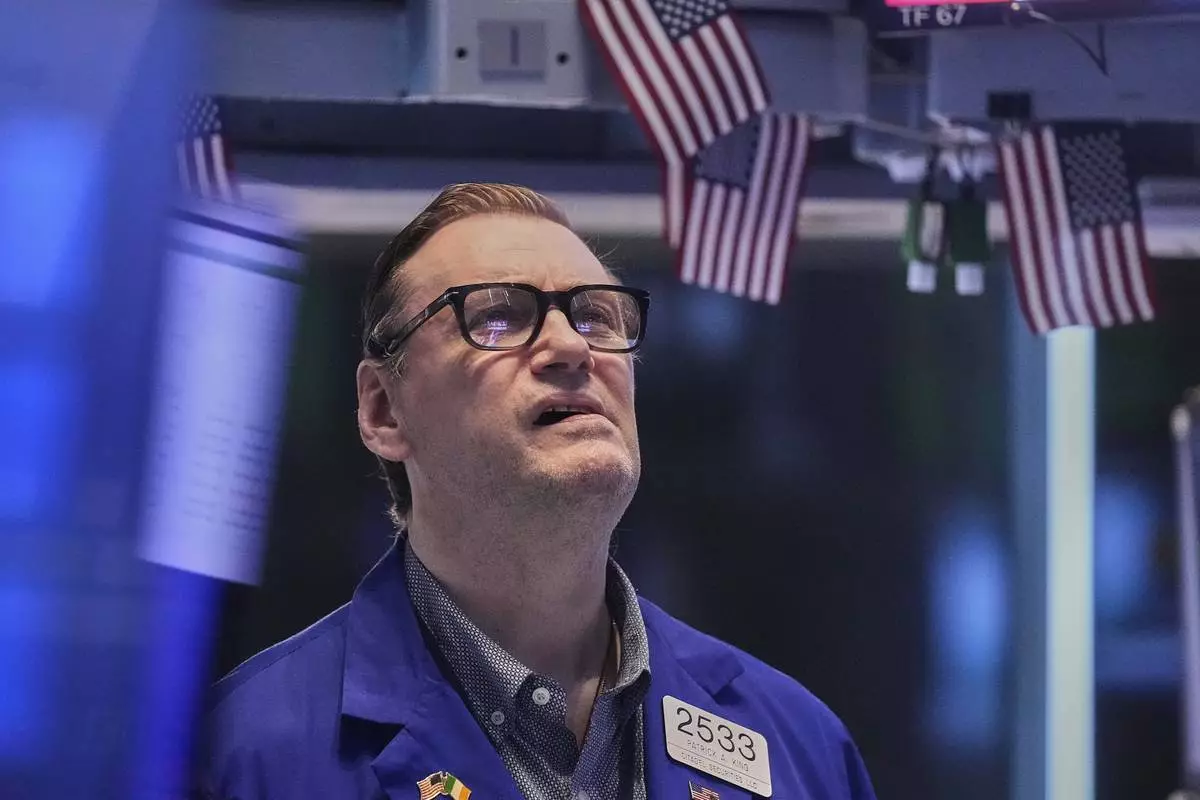
Specialist Patrick King works on the floor of the New York Stock Exchange, Friday, May 2, 2025. (AP Photo/Richard Drew)
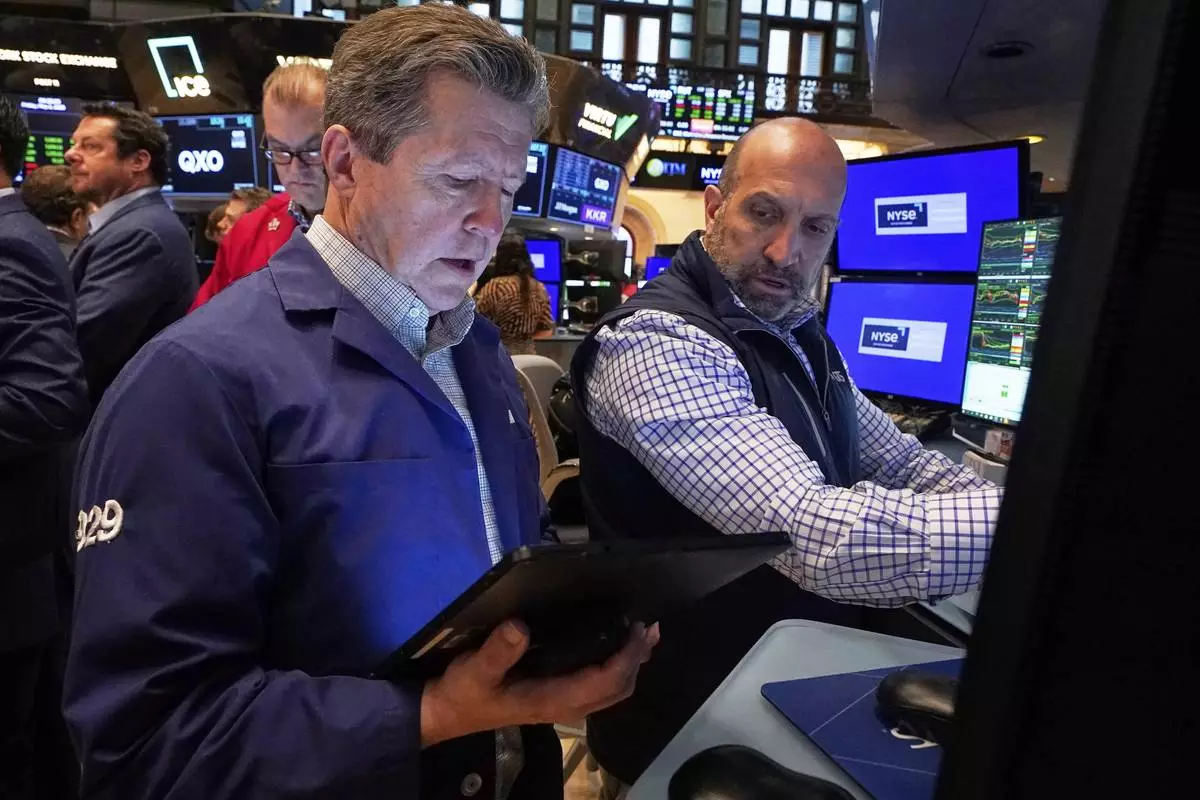
Trader James Matthews, left, and specialist James Denaro work on the floor of the New York Stock Exchange, Friday, May 2, 2025. (AP Photo/Richard Drew)
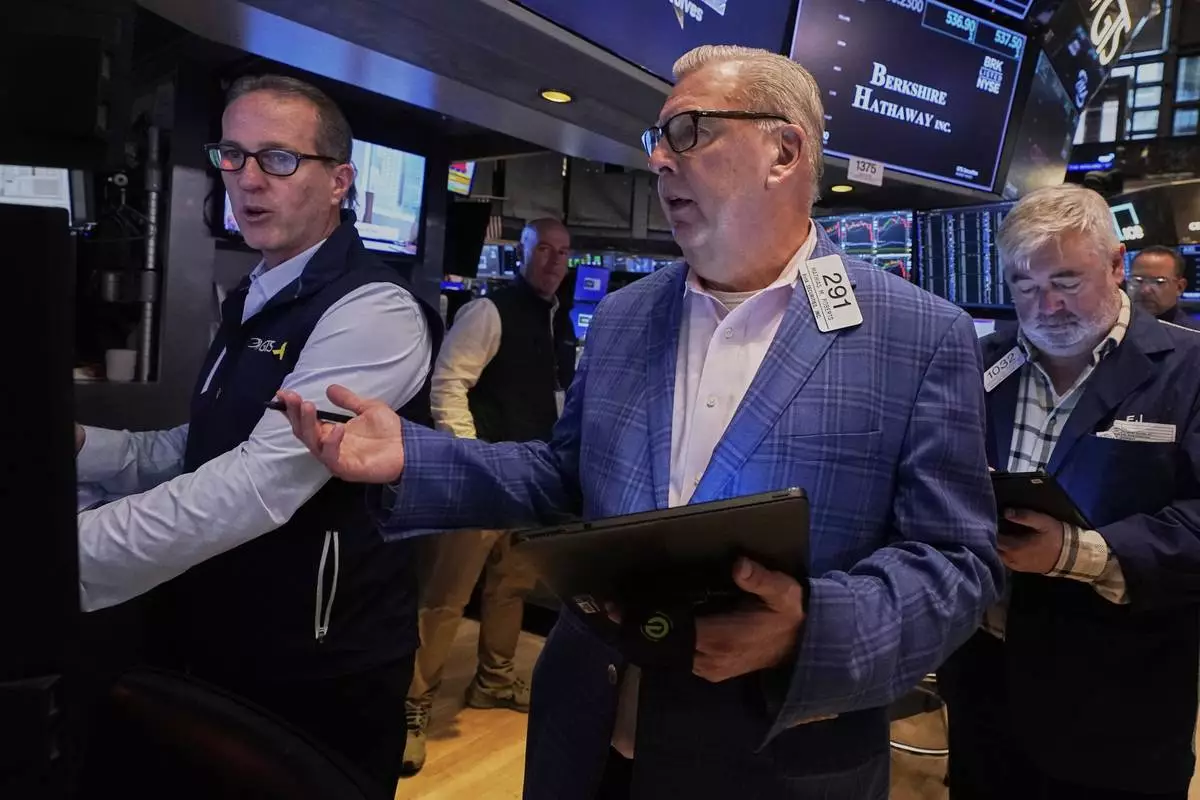
Specialist Glenn Carell, left, and trader Mathias Roberts, center, work on the floor of the New York Stock Exchange, Friday, May 2, 2025. (AP Photo/Richard Drew)
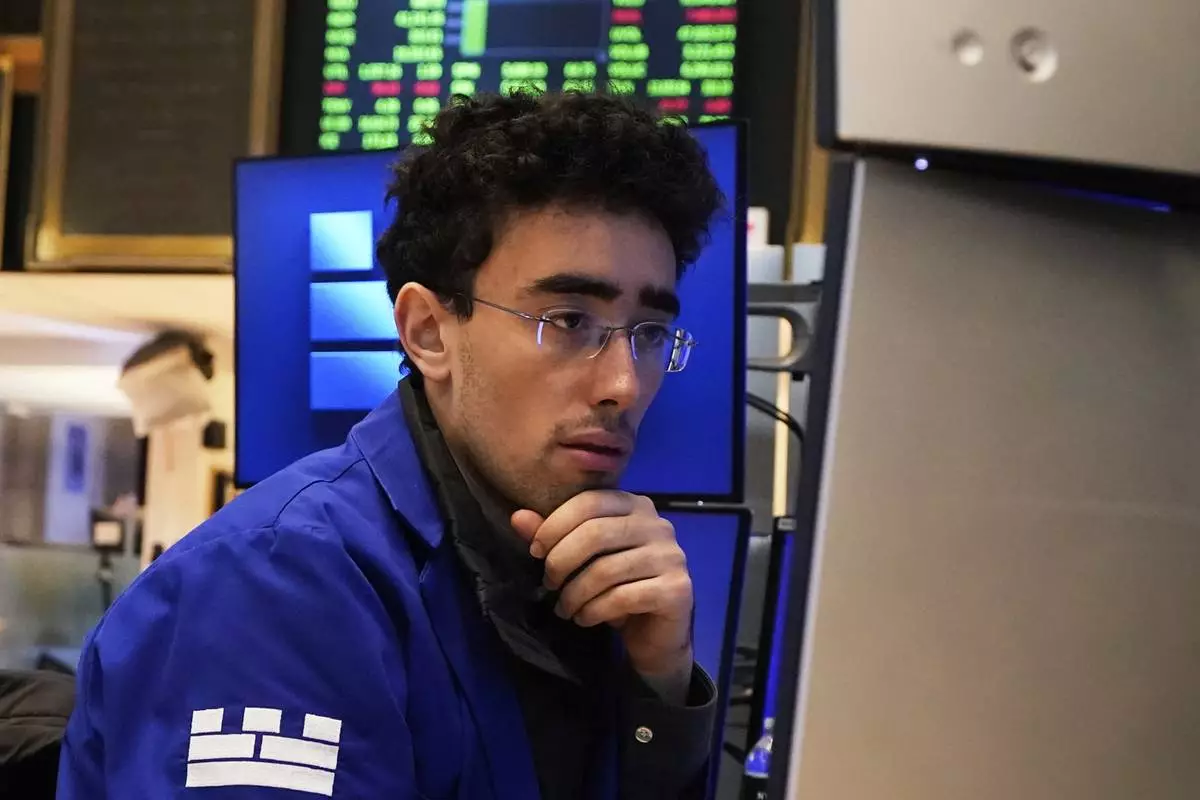
Specialist Alex Weitzman works at his post on the floor of the New York Stock Exchange, Friday, May 2, 2025. (AP Photo/Richard Drew)
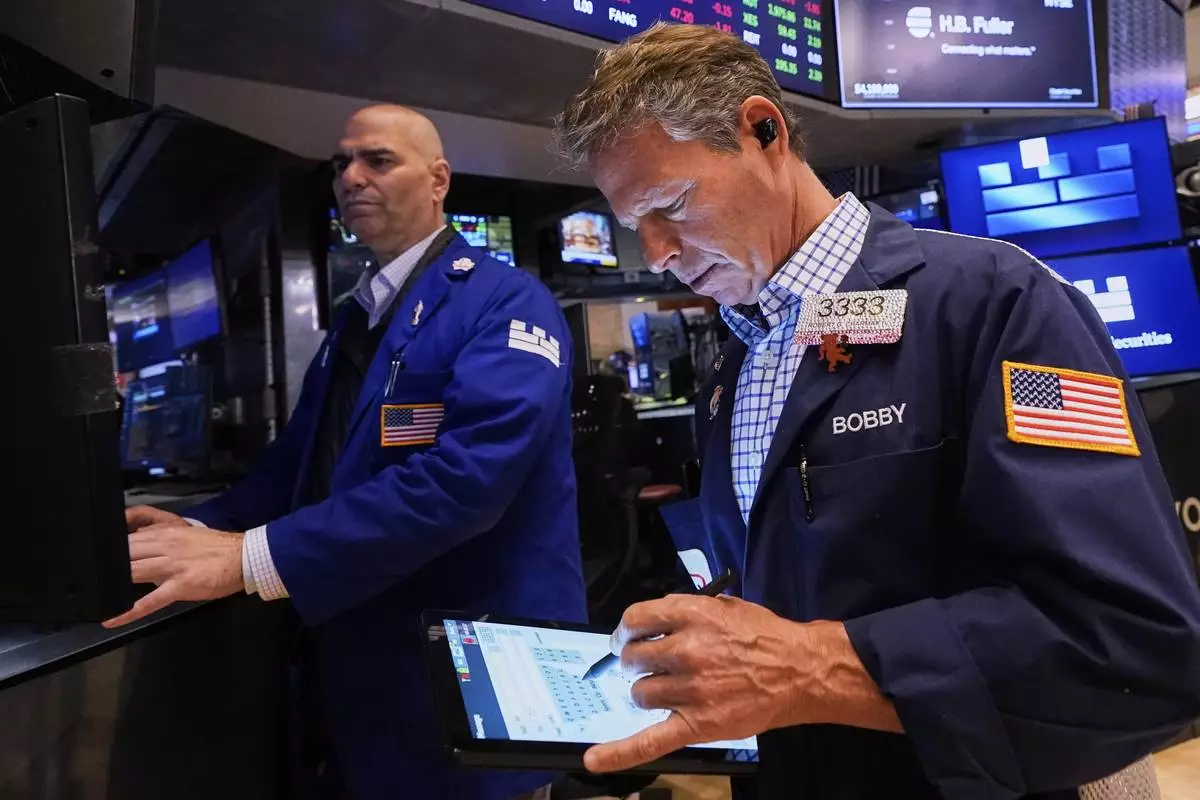
Specialist Philip Finale, left, and trader Robert Charmak work on the floor of the New York Stock Exchange, Friday, May 2, 2025. (AP Photo/Richard Drew)
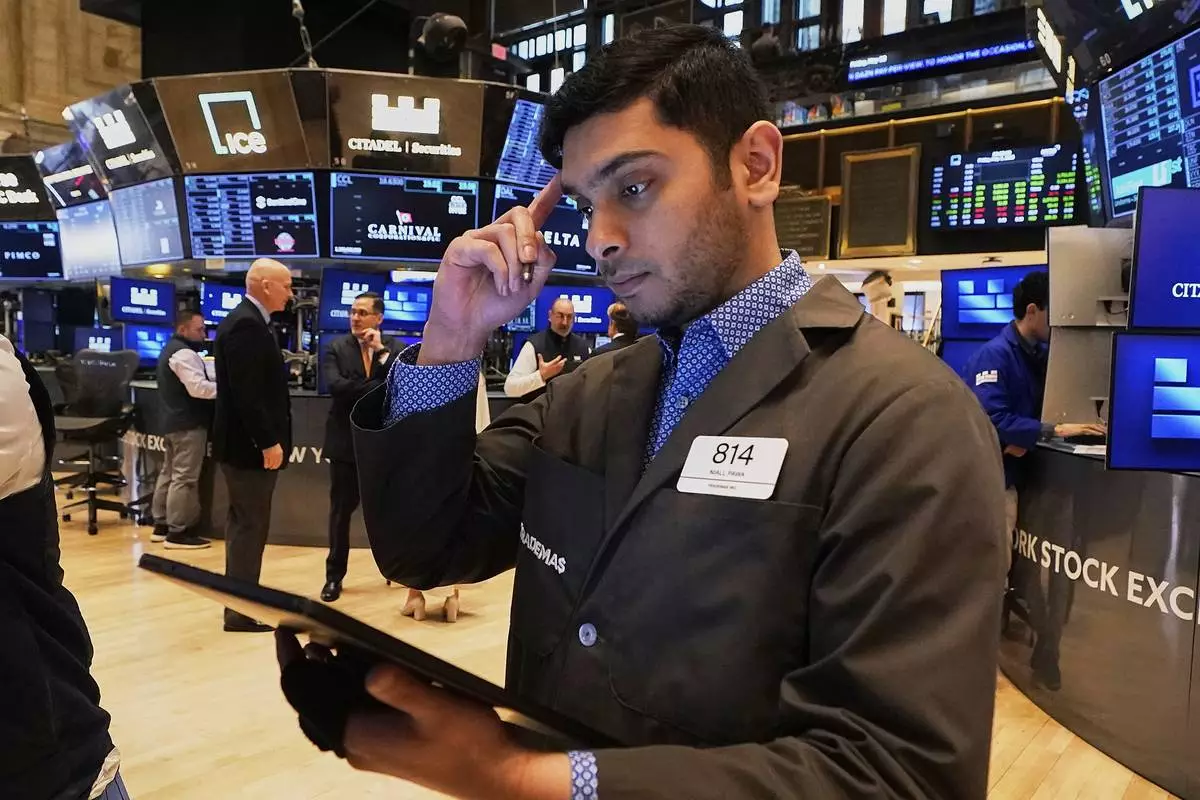
Trader Niall Pawa works on the floor of the New York Stock Exchange, Friday, May 2, 2025. (AP Photo/Richard Drew)
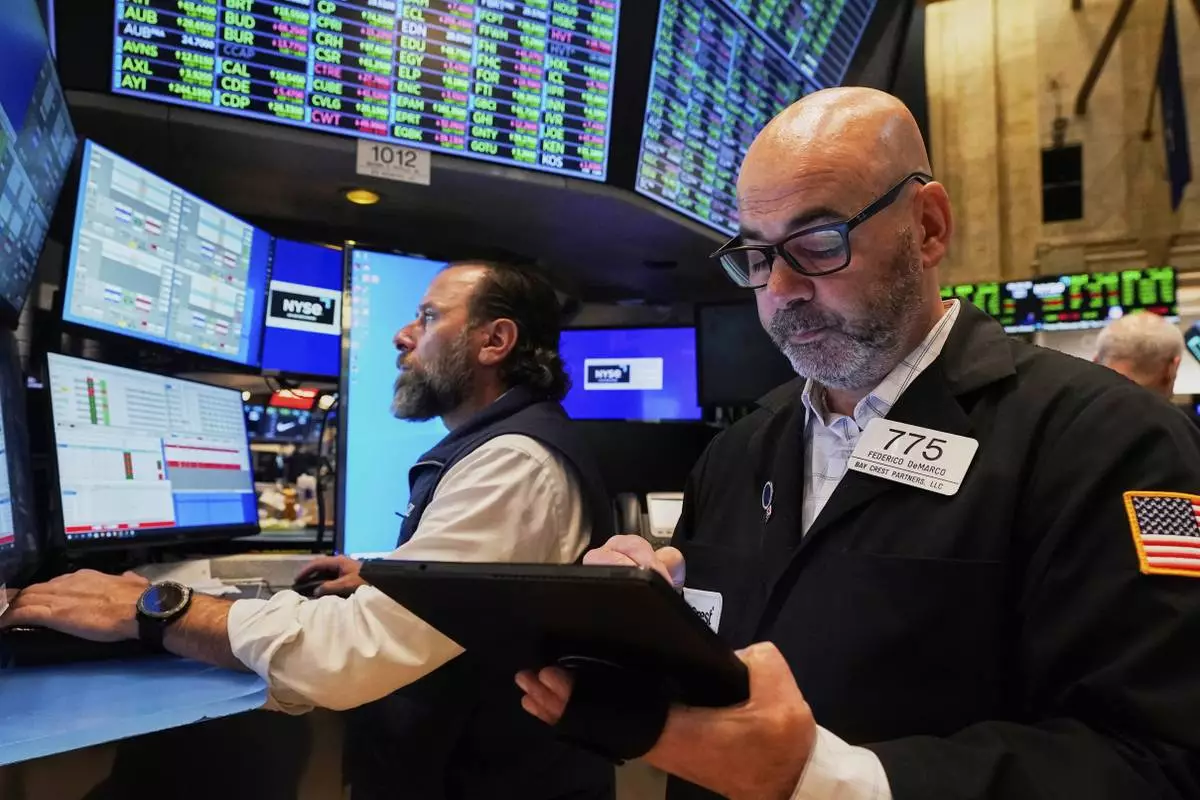
Specialist Michael Pistillo, left, and trader Fred Demarco work on the floor of the New York Stock Exchange, Friday, May 2, 2025. (AP Photo/Richard Drew)
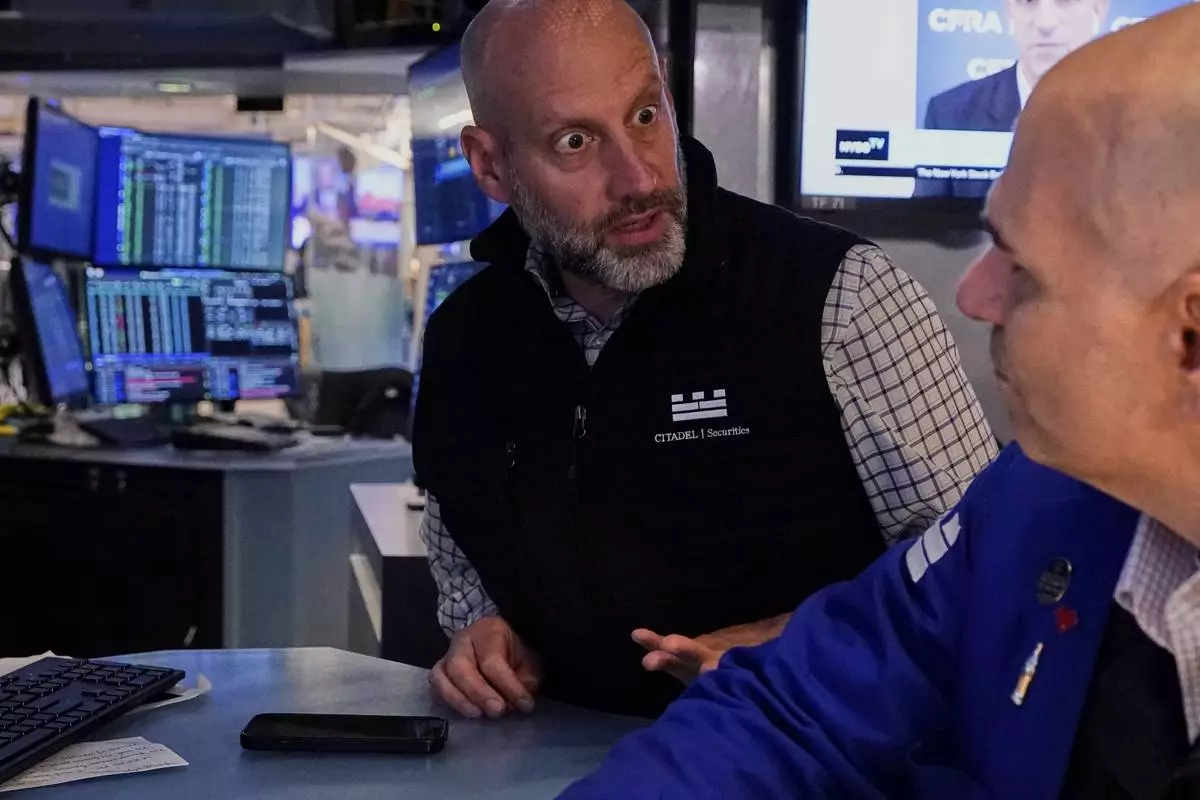
Specialists Meric Greenbaum, left, and Philip Finale confer on the floor of the New York Stock Exchange, Friday, May 2, 2025. (AP Photo/Richard Drew)
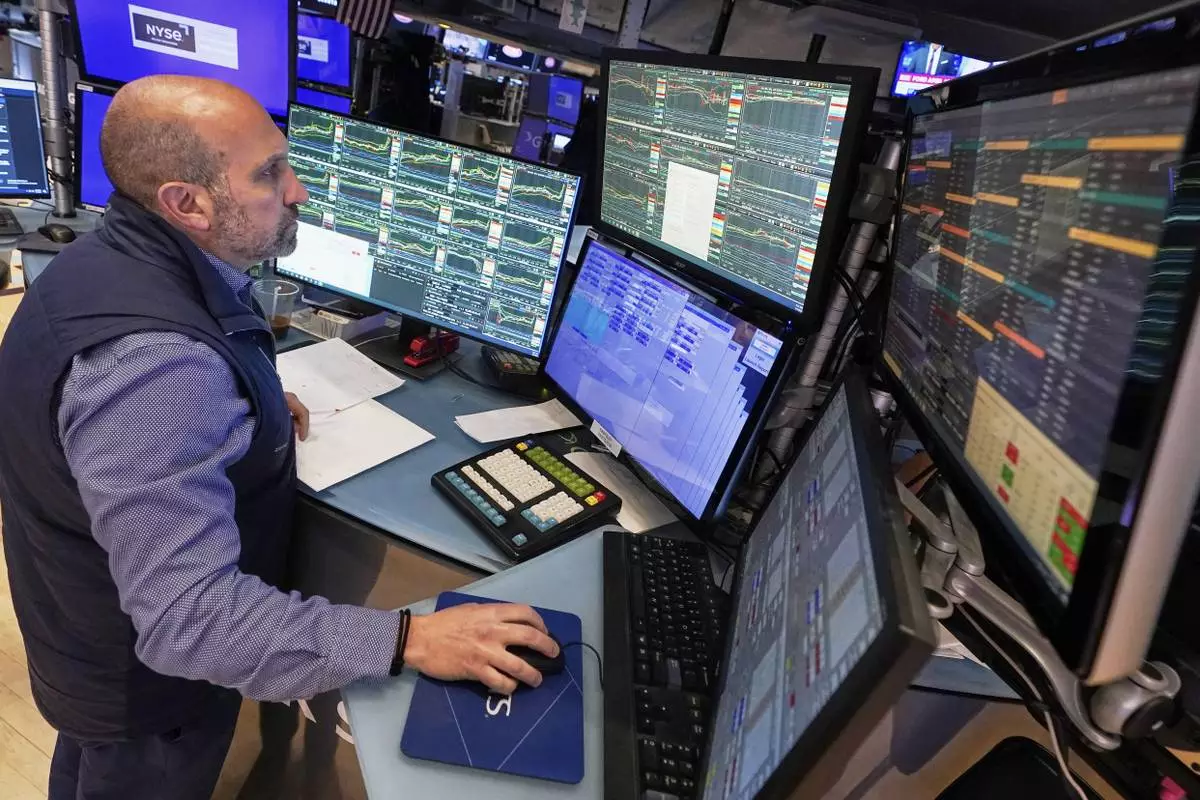
Specialist James Denaro works at his post on the floor of the New York Stock Exchange, Thursday, May 1, 2025. (AP Photo/Richard Drew)
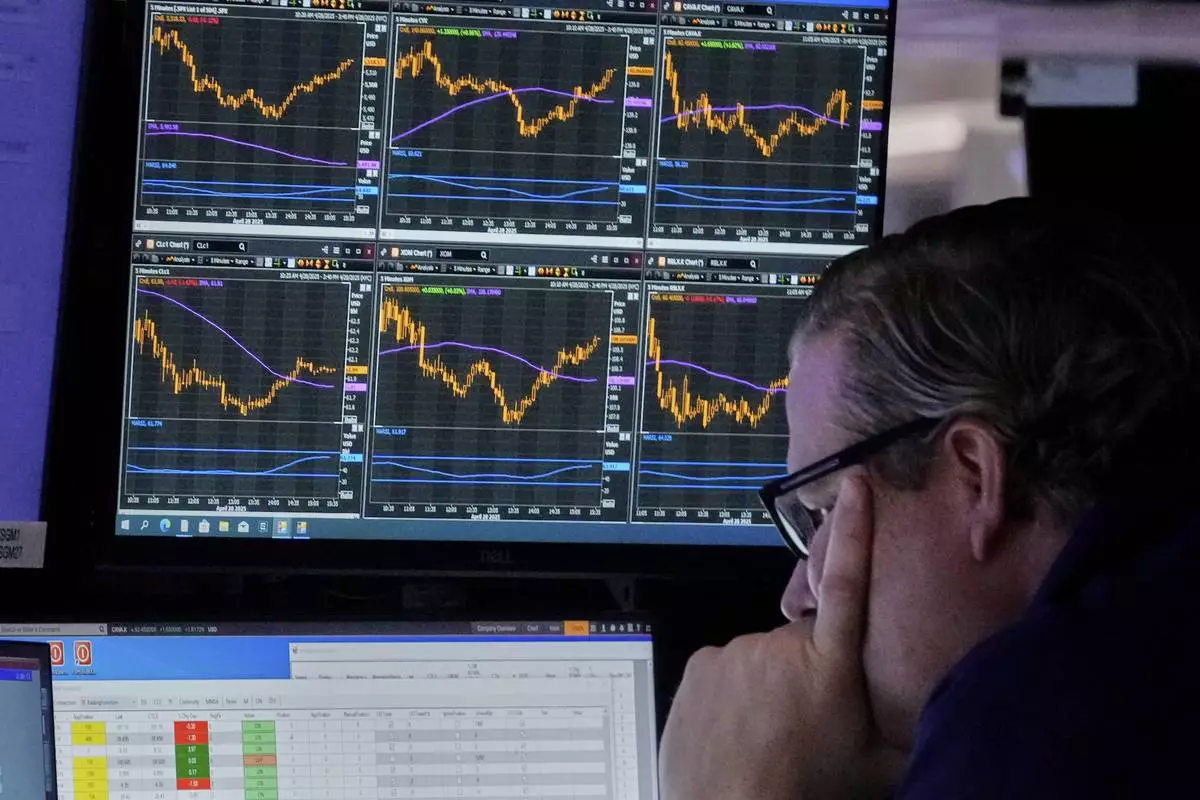
Specialist Gregg Maloney works at his post on the floor of the New York Stock Exchange, Monday, April 28, 2025. (AP Photo/Richard Drew)
















